
Why Bespoke Software can be the Smarter Way to Stay Ahead
No matter your industry – logistics, shipping, traffic management, property lettings, or vehicle hire – one challenge is the same: compliance.
Regulations keep changing, paper-based processes create inefficiencies, and the cost of getting it wrong can be severe. At Merisis, we design bespoke compliance software solutions that simplify complex workflows, reduce risk and give you full confidence in your operations.

Why compliance is so complex?
Every sector faces its own requirements:
- Logistics & shipping must meet customs rules such as ICS2 compliance.
- Traffic management companies need to record road setups accurately for health & safety.
- Property managers must demonstrate audit trails for inspections.
- Vehicle hire providers need digital evidence – from signed terms and conditions to date and GPS stamped images.
While the regulations differ, the pain points are the same: manual processes, disconnected systems and endless paperwork.
How bespoke compliance software helps
Many organisations rely on generic “off-the-shelf” systems. The problem? They’re rigid, costly and don’t reflect the nuances of your business. With custom-built compliance platforms, you gain:
Integration – Seamless links with your existing systems (HR, asset management, finance).
Digitised processes – Replace paper forms with electronic forms and PDFs.
On-the-go functionality – Mobile apps capture data, signatures, images, and inspection notes.
Proof of compliance – GPS, time and date-stamped photos prove checks were carried out on-site.
Audit trails – Automatic archiving of compliance records for easy retrieval.
Case study examples
- For Roadway Traffic Management, we built a mobile platform that integrates compliance with health & safety, vehicle maintenance and staff training – reducing costs by 50%.
- With TouchRight Property Software, we created a mobile app and platform that digitises property inspections, saves hours each day, and generates professional reports instantly.
- In vehicle hire, we’ve helped clients capture signatures and compliance evidence (with photos) to meet terms and conditions.
These solutions are not about ticking boxes. They’re about embedding compliance into everyday operations – making it efficient, consistent and reliable.
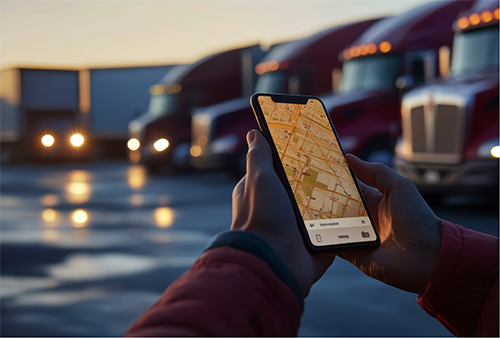
What is compliance software?
It’s a digital platform that manages regulatory requirements for your industry – replacing manual paperwork with electronic forms, signatures, and audit trails.
Why not use off-the-shelf compliance software?
Generic systems rarely fit the specific needs of your business. A bespoke compliance platform is built around your workflows, saving time and reducing errors.
How does compliance software save money?
By reducing admin hours, avoiding fines or delays and eliminating unnecessary software licence costs. Many of our clients see ROI within months.
Can compliance software be customised for my industry?
Yes. Whether it’s ICS2 shipping compliance, health & safety in traffic management, property inspections, or vehicle hire, our software is built to your requirements.
Merisis is a UK-based software development company with proven expertise across multiple sectors. From ICS2 customs compliance platforms to property inspection apps, we design solutions that are intuitive, cost-effective and scalable.
With Merisis, compliance stops being a burden and becomes a strength – a streamlined, digital process that protects your business and saves time.
Looking to replace paper forms, streamline compliance and stay ahead of regulatory change?
Get in touch with Merisis to discuss a bespoke compliance software solution for your business.

RPG (‘Report Program Generator’) code is the foundation for building and maintaining applications on IBM’s midrange systems (ie; IBM i, System/360, IBM 1401 and more).
And, ‘yes’, we still work with it – and for good reason too.
Some of you may ask “Why do you still bother with RPG?” or even, “What is RPG?” However for Merisis, it makes perfect sense to keep this programming language of yester-year alive for some of their customers.
A short summary would be this: RPG (‘Report Program Generator’) code is the foundation for building and maintaining applications on IBM’s midrange systems (ie; IBM i, System/360, IBM 1401 and more ). Over time, it has evolved to incorporate modern programming practices while maintaining its core strengths. So, as long as our clients have IBM system, we will continue to maintain our knowledge and capability using RPG.
Why not get clients to move away from RPG?
Unfortunately, it’s not as easy as that. Legacy systems can be expensive and pose a threat to business as usual should any errors occur when changing systems – making it a serious consideration and perhaps a long-term option on the corporate balance sheets.
How integral is it to IBM systems?

In the context of IBM’s RPG programming language, RPG refers to the lines of code written to create and run applications on their midrange systems, such as IBM i. It’s a high-level procedural language designed for business applications, and although its syntax and structure have evolved over time, it still represents an “older” way of coding to people who are newer to coding.
In terms of capabilities, RPG code is used to handle various legacy tasks such as report generation, data processing, and building complex business logic but also more modern tasks for serving web pages and web applications.
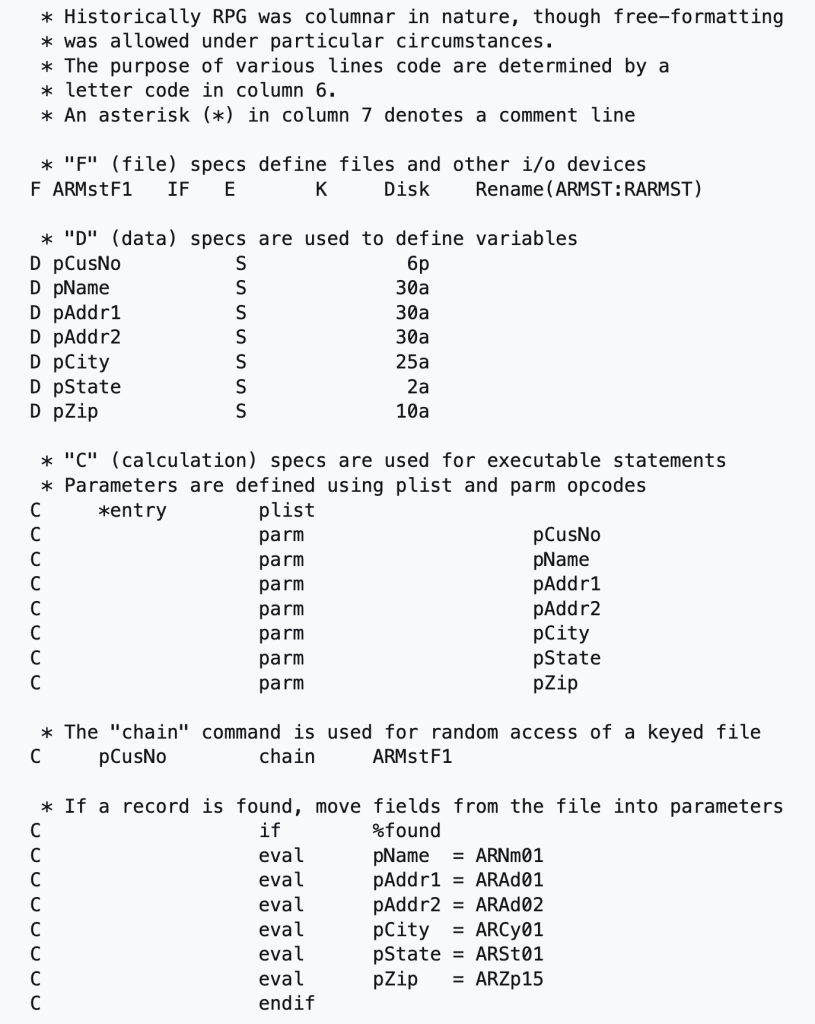
How does it compare to other programming languages such as Python, PHP and even Java for example?
All languages have their strengths, but as RPG is so deeply integrated with the IBM i platform, it is particularly good at batch processing, database integration and transaction management. However, RPG is limited in the fact that it is primarily used on IBM i which therefore limits its portability.
Python is a much more versatile language and is often used for data analysis and machine learning. Contrasting with RPG, it is a popular choice due to it’s easy to read syntax. However, it can potentially be slower for some web applications compared to PHP.
PHP has a large community and therefore well-supported frameworks. It’s specifically designed for backend logic and server-code scripting but is less versatile than the more modern Python.
Although still widely used, we tend to work in Java less these days. It is more ‘general purpose’ and used in a wider range of applications from web development and enterprise applications than RPG – and also boasts a much larger ecosystem of libraries, frameworks and tools. Additionally, Java is platform independent making it very versatile.
RPG – Here to stay
As far as Merisis are concerned, RPG is here for the time being. Although it may no longer represent the future direction of coding, it represents a robust past – one which is very much part of Merisis’ backbone. As with all projects, we always consider the options and implications for what technical approach we take with the aim always being to produce the best result we can. That may mean working in Python, PHP or even Java. And if sometimes this means putting on our RPG hats, then we will do that with absolute confidence.
- 1. https://en.wikipedia.org/wiki/IBM_RPG ↩︎

25 years in the Tech industry, Part 3.
In our final retrospective look at Merisis and the tech industry, we come up to the present day.
2010 and onwards – more tech, more progress and new challenges. 25 years in the tech industry, part 3.
Take a look back at the year 2010 and the film Avatar will come up. Released in late 2009, it quickly became the highest grossing film of all time with close to $3 billion Worldwide gross to date…
The mainstream tech landscape.
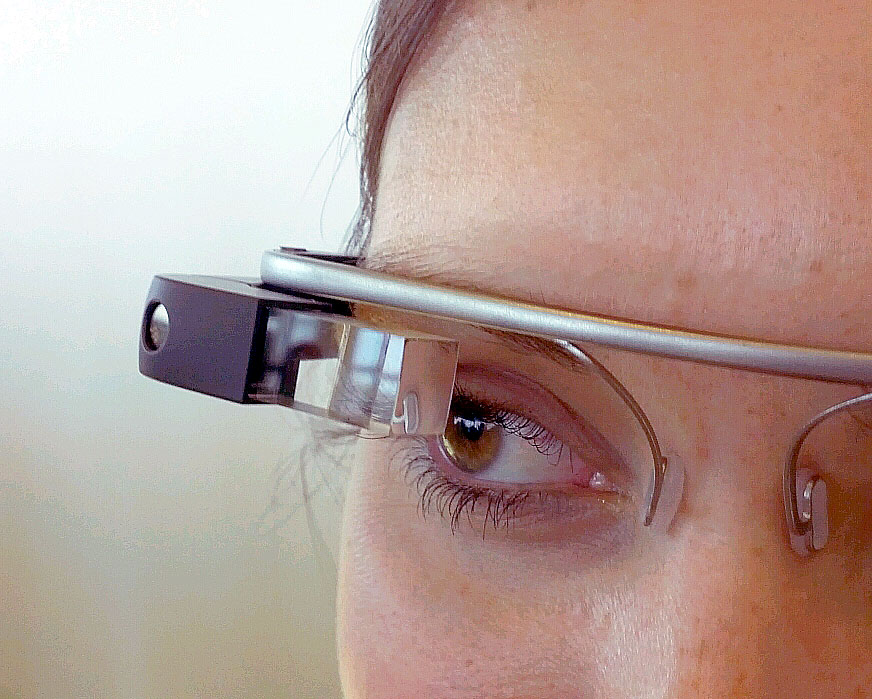
What it will also be remembered about Avatar is how it blended human actors with a completely computer generated world, unlike anything we’d previously seen. Yes – we’ve had dinosaurs, aliens and superheroes, but Avatar represented a step up, technically speaking.
Tech certainly didn’t stop. Smart phones are now so ingrained in everyday life that it’s more unusual not to have one than it is to own one. Smart devices and virtual reality headsets, although not ‘new’ in the 2010’s, certainly became more widely spoken about. Google Glass (2013) had a mission to produce the ‘ubiquitous computer’ – that is where computing is made to appear seamlessly anytime and everywhere.
Progress, however, comes at a price – somewhere and somehow. Away from the cost of drones, VR and autonomous vehicle technology there are people trying to exploit the rise in the use of the precious commodity it captures – data.
Cyber hacking hot headlines (again, not ‘new’ but certainly on the increase), Afghan War documents leak (2010), Iraq War documents leak (2010), Yahoo! Data breach (2016) and WannaCry ransomware attack (2017) – plus many more – all caused embarrassment and raised serious questions across not just the country, but the world.
The rise and rise of mobile apps
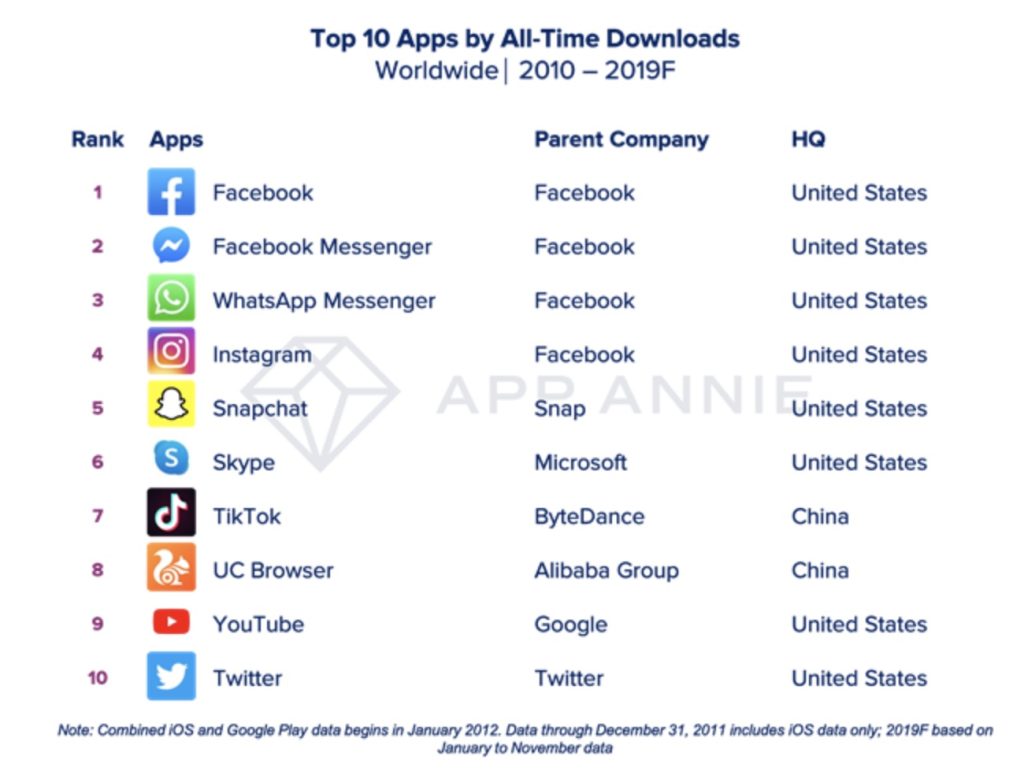
By this time consumers as a whole were much more tech savvy. Technology is not an exception by any means – it’s simply part of how we live and interact; the internet is simply a part of everyday life.
For businesses the increased affordability and agility which tech represented helped fuel start-ups. Even more than ever before, people could reach a global audience from their spare room, utilising the internet and social media, connecting with like-minded people across the world and doing this at pace.
Perhaps encourage by this, the mobile app market continued to mature well. More people with more smart phones – the opportunities for small and large businesses alike seemed endless. From a starting point of frivolity (remember the beer-pouring app?) and games (Angry Birds, Dec 2009) there was a shift in the mid-2010’s to social media and lifestyle apps. Apple revealed almost 300,000 jobs were added to the US economy since the iPhone’s debut, calling it “the app revolution” and Facebook acquired Instagram for $1 billion in April 2012.
Merisis and the tech industry landscape
New tech start-ups came. Some stayed and some went. For Merisis however, it was business as usual. And if that doesn’t sound dynamic enough, don’t be alarmed. Merisis did (and do) embrace the changing tech landscape – but not as ‘Emperor’s New Clothes’ but as new tools to help solve problems.
The logistics sector continued to be a strong backbone to Merisis’ business with the relationship with NYK approaching two decades by 2020. More transport logistics clients joined the Merisis rosta, with names such as Roadway coming on board. However Merisis’s solutions were also helping a wider range of industries – a global whisky brand, a regional council, a Government department, UK bookseller and a furniture manufacturer would, over the course of time, turn to Merisis for their technical expertise and they became known by many as specialists for mobile and browser-based apps.
What apps meant for shipping and logistics
Merisis has produced lots of mobile apps with an end-consumer focus – helping clients navigate the challenges of Android and iOS – as well as taking on the task of publishing to Google Play Store (easy) and Apple App Store (less so…).
For the logistics sector, the words ‘mobile app’ had a different application than what the consumer would recognise at this time. Mobile technology represented an opportunity to modernise what was a traditionally paperwork-heavy processes and to create a solid chain of custody by recording and capturing information, often in real-time.
This started to give a new level of visibility to businesses and the end consumer. An example everyone can relate to now is the ability for you to track the progress of a delivery van as it travels around your neighbourhood: “only 3 stops away”. This is technology – scanning barcodes as something is despatched through a logistics network from a warehouse to your home.
On a global scale, this happens from one side of the globe to another, with container ships being loaded in an efficient way to accommodate the physical dimensions and weight of items so they can go from one side of the world to the other, with various drop-offs and collections in different continents along the way.
The implications have helped transform the global market for consumers and sellers alike but again this brings new challenges. (See our recent post about the Import Control System, aka ‘ICS2 regulations’ here).
Refining ‘The Merisis Way’
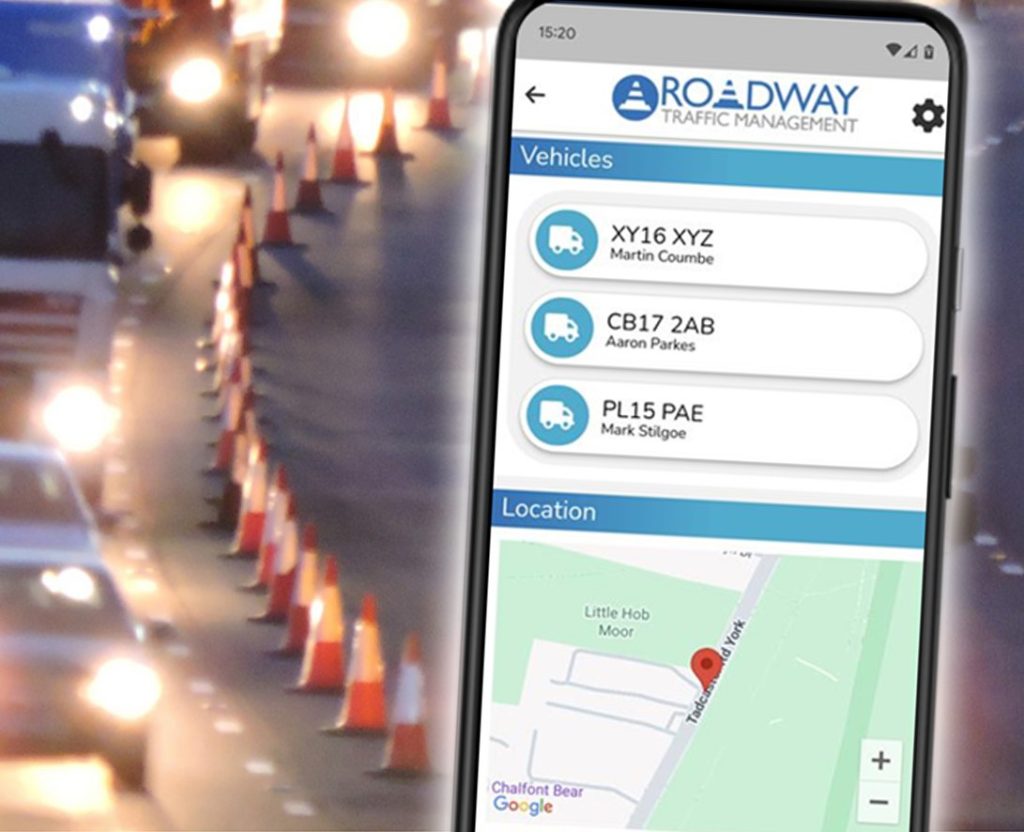
For Merisis, the formative part of the 2000’s helped confirm that their approach was working. With continued repeat business to demonstrate success, Merisis has always recognised the importance of building strong and honest relationships based on core values and solid capability. The result has been low-churn, in terms of both clients and staff members too.
Darren and Jon attribute this to a ‘no hierarchy’ system where every member of the team has a valid voice and opinion, and where the client always has the most simple and direct route to speaking with the people working on their project. Add to this the fact that everything is done in-house by the full-time team, Merisis has built a reputation of always delivering. There’s no over promising – only absolute clarity and honesty.
Looking ahead
Despite all the advances of technology and the benefits it can bring, Merisis will still keep the practicalities of the world at the forefront of what they do. Some things are here for generations more – such as the road and rail networks – so Merisis will continue to ask questions; “How can we make this work better for our customers and for their customers?”, and “How can we us tech to enable this company/process/task to run more efficiently?”
Depending on the scale of the problem, progress can be measured in small percentages but with great impact, and perhaps this is where AI can make a difference with global logistics or the efficiencies of the UK road network. Rather than thinking of AI being a tool to create images, manipulate music or write content – in Merisis’ world AI may be utilised for decision-making processes and complex calculations for example.
Make no mistake – tech will continue to improve; increasingly quicker, less black-spots in connectivity, more wearable, more voice recognition, more autonomy.
Merisis for one will be part of the journey and observing how new ideas are adopted by the tech industry and used and integrated into the world – as well as doing much of the integration themselves.
But, as is the Merisis way, they will only do this if and when it’s the correct solution for a problem they are solving. Tech for the sake of tech? Never. Technology that delivers? Always.
- 1. https://www.flickr.com/photos/azugaldia/7457645618
↩︎ - 2. https://techcrunch.com/2019/12/16/the-top-apps-and-games-of-the-2010s/ ↩︎
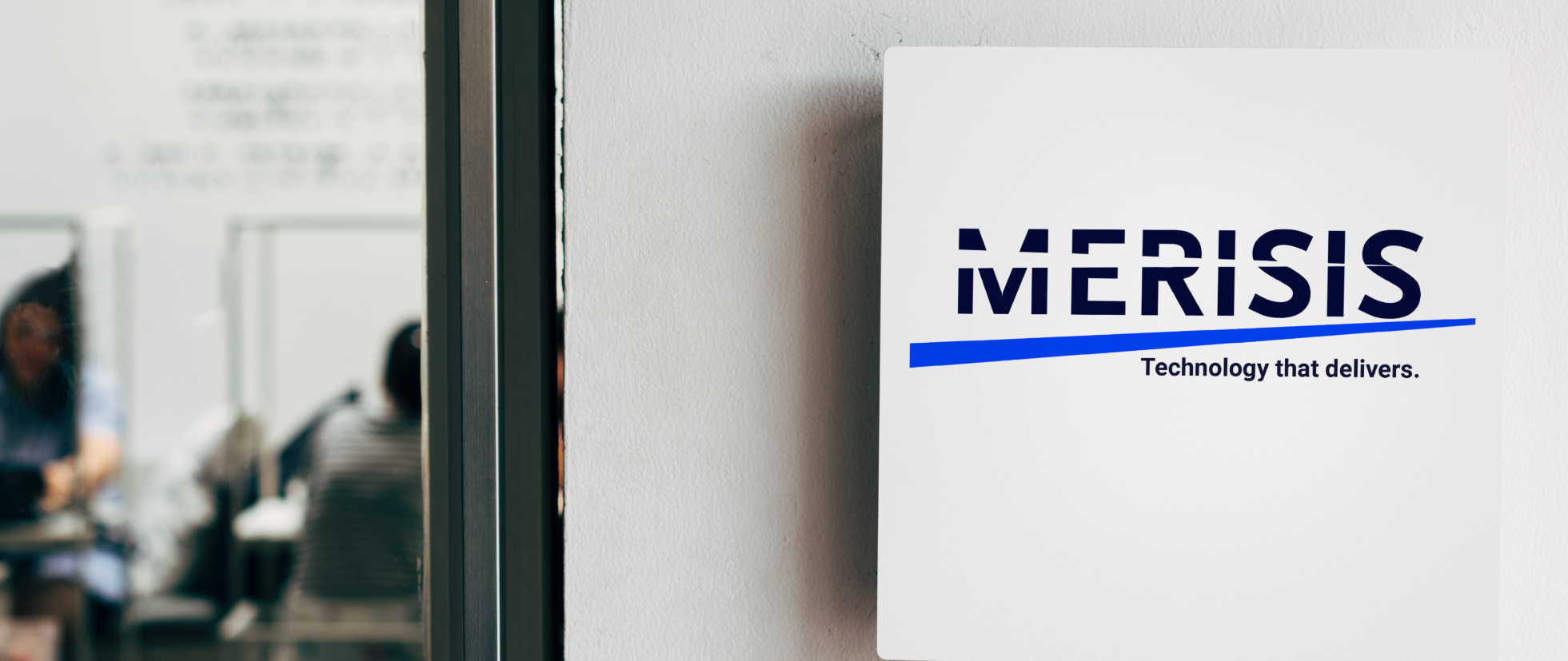
Merisis Case Study: Creating operational efficiency, regulatory compliance and cost-effectiveness for the UK’s leading temporary traffic management suppliers.
Roadway are one of the UK’s leading temporary traffic management suppliers whose focus is on the quality of their service and the safety of their workforce, their clients and the travelling public.
The Challenge

Setting up traffic management systems on the UK’s busy roads is not a simple task and includes lots of pre-planning and site-awareness, as well as the logistical complications of ensuring physical assets and relevant teams are in the right place, at the right time.
This would have previously created a very long and complex paper trail until a software solution came along.
Like many other organisations, Roadway were using a generic off the shelf template which they would then have to adapt for their own needs. This however presented many problems, one of which was that the software was less bespoke than required, and more ‘one size fits all’. This meant that any system updates by the developers affected every user – whether it was needed, wanted or necessary.
The rigidity of the system, alongside relatively high monthly fees, gave Roadway the impetus to create something which was not only bespoke to their growing needs, but would also help them deliver on their strong values. At this point, they got in touch with Merisis.
Our Approach
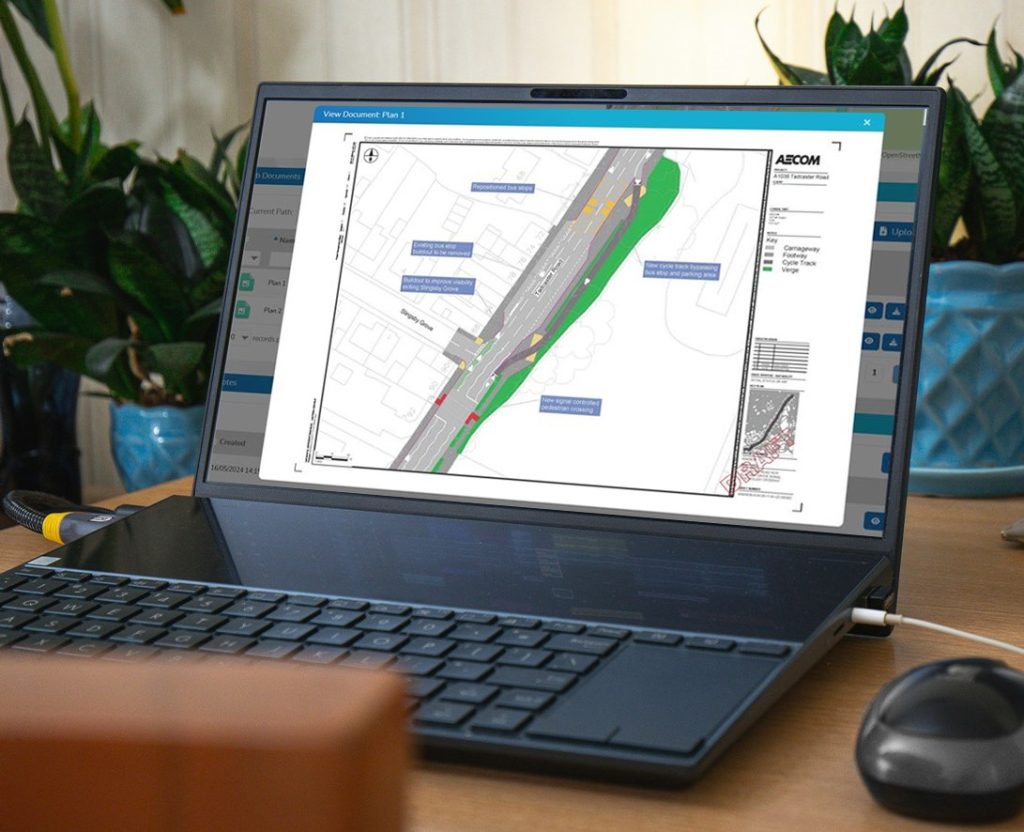
Like with many projects, Roadway approached Merisis with ideas, suggestions, wants and needs regarding how to solve their problem. But rather than creating a variation of what was on the market already, Roadway wanted something much more useful and usable and therefore integral to how they operate. It was to be the platform from which they would control their growing operations
The challenge for Merisis was to understand what content was required, how it related to each other content and how it currently existed; it was a combination of the existing software, digital capture, HR records, vehicle records and of course, a paper trail.
Understanding the way Roadway worked, and wanted to work moving forwards, was critical too. This gave Merisis the ability to positively challenge the brief and give feedback on the client’s ideas. The purpose was for Merisis to add greater value by enhancing ideas and giving recommendations which would in turn provide better outcomes for the client.
The outcome

The result of the work with Roadway is a software platform which, in their words, is a ‘complete game-changer’. Not just a platform which holds details of a job at hand (such as location, materials and dates), the system integrates with the ISO compliance, Health & Safety, vehicle maintenance and staff training needs of the organisation – creating a thorough audit trail of all elements which contribute to how they run their business.
The accompanying mobile app helps on-site teams to capture digital content such as imagery, as well as processes which were previously manually controlled. Everything is captured is held centrally in real-time, giving Roadway operational visibility like never before.
Roadway have stated that the system helps them in three key areas: operational efficiency, regulatory compliance and cost-effectiveness.
“Merisis have been brilliant throughout the process. They’ve always had ideas to improve our brief – often giving me their recommendations and suggestions. We can have open and constructive discussions as I know they have my best interests in mind.
I can honestly say our new system has paid for itself already as the ongoing costs are 50% cheaper than what we were paying elsewhere. What they have produced is something very clean and modern – it’s quick and very user friendly unlike other software we’ve experienced. It gives us a real point of difference for how we operate.
”
Karl Ashcroft, Operations Director, Roadway Traffic Management




What implications do more electric vehicles have on the global shipping industry?
Electric vehicles are here to stay, and by 2030, no new petrol or diesel cars will be manufactured. Great for the environment, but what will the implications of global shipping be?
The UK Government has commenced a consultation on phasing out the sale of new petrol and diesel cars from 2030 as part of their clean energy mission and economic growth mission. Despite a relaxation on the UK’s electric vehicle sales targets (in response to US tariffs), the sales of petrol and diesel vehicles will be reduced year on year up to the year 2030 when all new consumer vehicles will be electric.
So what will this actually mean for global shipping?
For the general public, this means our attention will turn to the affordability of electric vehicles, and getting tips on how to overcome range anxiety. However, for the shipping industry, there may be larger implications when we consider the overall rise of electric vehicles – whether commercial or domestic.
For this, let’s consider cars:
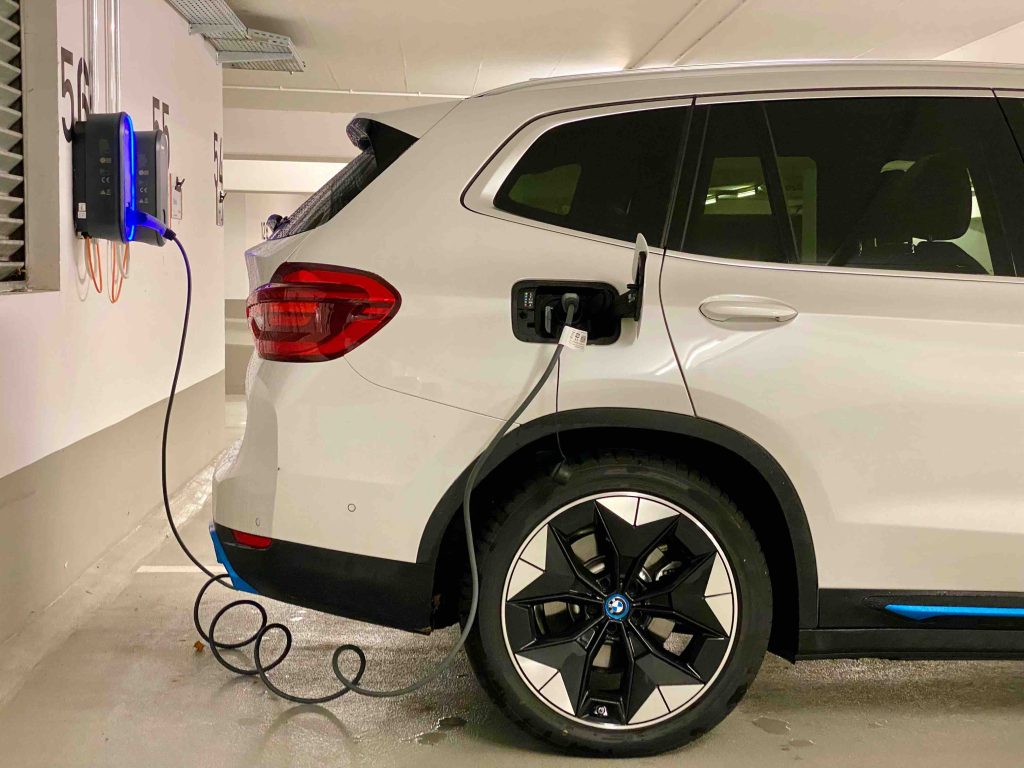
In 2023, the UK imported cars valued at £68.08 billion, with the EU accounting for 71.5% of these imports, while China was the second-largest trading partner, representing under 10% of imports. The most practical shipping method for cars is using RoRo shipping – that is “Roll-on, Roll-off” where the vehicles are driven onto a deck, rather than being in a container. Logistically, this means shipping companies need to know the dimensions of each vehicle, and where they are being shipped to, so they can efficiently and safely load a ship – utilising all available space to it’s best use.
When you introduce electric cars to the equation, this presents no initial problem as, generally speaking, the overall dimensions of an electric car may be the same as, or within reasonable tolerance of, that of a petrol or diesel car. The weight, however, is a different matter.
Transport & Environment, a campaign group, calculates that EVs are on average between 300kg and 400kg heavier than their petrol counterparts – and this of course mainly comes down to the battery. The longer the vehicle range, the bigger the battery. The bigger the battery, the heavier it becomes.
The increased weight of such electric cargo, therefore has implications to the shipping industry:
1. Reduced Cargo Capacity
- • The weight of batteries for electric vehicles could mean a cargo ship cannot carry as many units as it previously would.
- • Shipping companies therefore may need to make more trips to transport the same amount of goods which would in turn impact profitability.
2. Vessel Stability
- • Weight distribution is an important factor in shipping – especially when considering stability and safe handling – this gives new considerations for planners.
- • The distribution of the additional weight also impacts the hydrodynamics, aerodynamics, and energy consumption of a vessel.
3. Shipping Costs and Efficiency
- • Heavier vehicles often require more fuel and resources to transport which may in turn lead to increased shipping costs.
- • More shipping trips (for the same amount of goods) could have an impact on the existing transportation infrastructure.
4. Charging Infrastructure and Time
- • The lack of widespread, high-capacity charging infrastructure at ports is a major concern for electric shipping.
- • If vehicles need charging in order to move them, the lack of infrastructure could cause delays.
5. Other Considerations
- • New types of cargo, like large lithium-ion batteries, may present new risks that need to be identified, evaluated, and mitigated.
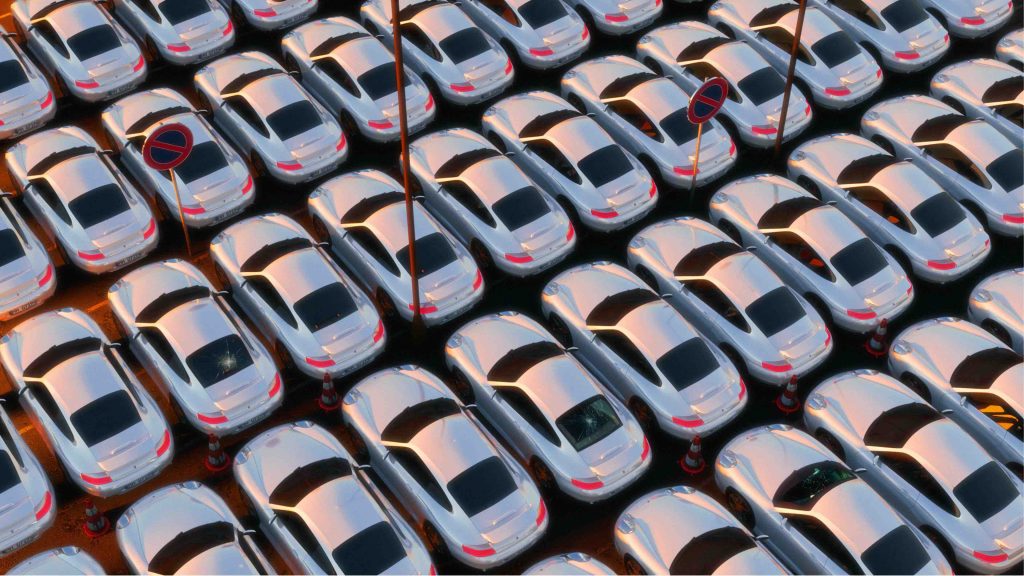
Although this may seem like negativity from us, it’s not. It’s just reality. We appreciate the world is changing, and much of our work with clients is about recognising new challenges and developing ways to alleviate or circumnavigate the pain. Yes – websites, dashboards and apps may look great – but for us and our clients, they really need to solve problems too.
This growing challenge will be tackled head on at Merisis. We’ll be using our knowledge and experience in the logistics industry to continue to develop software solutions which consider new and varying factors – such as increased and varying weight – as we always have done. And this doesn’t come from a lone standpoint as we acknowledge the bigger implications are on some of our clients; we will remind them that we’re standing with them to deliver some great technology.

ICS2 regulations – Why Merisis Technology is the key software partner for compliance in logistics.
ICS2 brought lots of challenges to logistics companies. Fortunately, for NYK Group Europe, Merisis were at hand to help facilitate a smooth implementation.
As the ICS2 regulations continue to roll out, logistics businesses face increasing challenges in ensuring accurate, timely, and compliant customs filings.
For many, the combination of the complexity of dual filings, new data requirements, and tighter pre-arrival deadlines have proven to be significant hurdles which are bringing additional problems to an already competitive and demanding industry.
However, at Merisis we firmly believe there is light for those who are under pressure to adapt to the new regulations having already proven our ability to navigate these challenges successfully.
Delivering ICS2 Compliance for NYK Group Europe
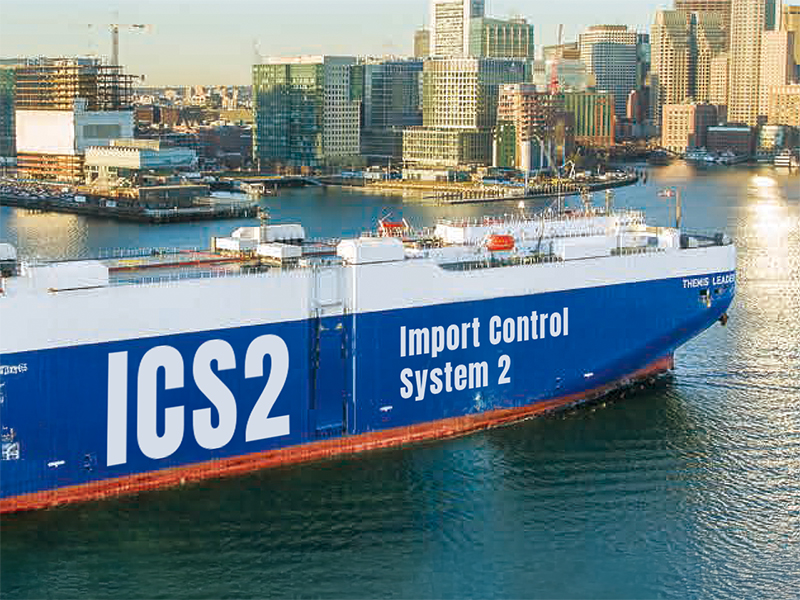
Merisis partnered with NYK Group Europe in June of 2024 to implement the necessary ICS2 system updates, going live several months later. The importance of the successful completion of this project cannot be understated; it ensured NYK Group Europe’s compliance with EU customs regulations and prevented costly penalties or shipment delays.
Implementing new regulations can be complicated at best. The nuances of the regulations need to be clearly understood, as do the inner workings of the organisation who they apply to. This is something we embrace.
A crucial element of the project was developing software that integrated seamlessly with the Descartes Customs Compliance platform, enabling NYK Group Europe to maintain established workflows while extending functionality to meet the demands of ICS2. This approach not only safeguarded compliance but also demonstrated our ability to bridge modern regulatory requirements with existing systems.
The project was a great success, and we are proud of the outcome we have achieved with NYK Group Europe. On reflection, we can highlight some of the key benefits we brought to the relationship.
– Problem-solving in an uncertain environment
There were ambiguous guidelines and delays from key external systems from the start, so it was important that we were able to adapt quickly, implementing solutions in real-time to meet the evolving regulatory demands. A large part of that comes from our years of experience and knowledge of the logistics industry.
– Meeting critical deadlines
Many carriers and house filers struggled to comply with ICS2 on time – but, thanks to Merisis’ expertise in agile software development, regulatory compliance solutions and effective project management, NYK Group did not miss this key deadline.
– Trusted expertise and support
We pride ourselves in our ability to work well with all stakeholders of any project, and part of this is about building trust. Feedback from NYK highlights this and demonstrates the confidence they had in the Merisis team to get this key project delivered:
“Whatever the brick wall, I was confident we’d get around it.
Your team has been amazing – your expertise and experience made all the difference.
This project has been my highlight!”
How Merisis can help logistics businesses with ICS2
At Merisis we don’t just implement software – we work as an extension of your team. We’re experienced in ensuring regulatory compliance and thrive on creating a seamless integration with minimal disruption to operations.
Additionally, we’re not tied to a specific software platform – we’re used to adapting to legacy systems and utilising the best tools for the job. Whether it’s custom software solutions, API integrations, or full compliance platforms, we help businesses stay ahead of ICS2, and future regulatory changes.
If your business is navigating ICS2 challenges or preparing for future logistics technology shifts, let’s talk.

25 years in the Tech industry, Part 2.
Part 2 of our blog about our experiences in the tech industry takes us into the dawn of not just a new decade, but a new century too.
Following our previous article we now take a look at a new decade and a new century – 2000.
As with before there is plenty of tech industry and general nostalgia – some things you may remember, others you may have forgotten over time. Ultimately, we take a look at the changing programming landscape and what it meant for new companies such as Merisis.
The 2000’s – a new century dawned and there was a lot to take in…
On the positive side of things, the Summer Olympics were held in Sydney in the year 2000. Officially called the “Games of the XXVII Olympiad” it was one where England had made a bid to host (with Manchester being the ‘host’ city), but ultimately lost out to Australia. In terms of the medal table, Great Britain came a fairly respectable 10th.

Also of note for this decade was the € Euro entering circulation, the creation of the role of Mayor of London and the retirement of the Anglo-French supersonic airliner, Concorde.
Unfortunately, the early 2000’s are also remembered for a dramatic and downright horrifying event – the 9/11 terror attacks in New York. The world really seemed to have changed at this moment.
The rise of tech and the decline of the high street
The economic landscape didn’t fare too well at this time either – a case brought to home when UK stalwart Woolworth closed its doors in 2009 representing the decline of the high street had truly begun. Many fingers of blame regarding such retail struggles were aimed firmly at the rise of online shopping, however Woolworth’s online presence only lasted a further six years.
Just a few years before Woolies disappeared from our streets, we suffered a global financial crisis leading to recession. This decade was certainly hitting hard. Despite all these challenges, the world of tech still moved at great pace.
Internet use rose from 6.7 to 25.7% of the world’s population and Web 2.0 (and broadband internet) meant users had a more visual experience with images and video. Many familiar websites were created in the 2000’s, such as Wikipedia (2001), Google Earth (2001), iTunes (2001), Facebook (2004), YouTube (2005) and Spotify (2008).
What this meant for consumers
If the 1990’s saw tech becoming more synonymous with consumers, then the early 2000’s certainly saw this notion cemented. Tech was well and truly established as part of everyday life: mobile phones, games consoles, cars – the list is endless. More people had more computers which were easier to use and faster than before. The humble pen and paper was becoming rarer in the business context and information was well and truly digital.
Servers at this point (predominantly IBM for most FTSE-sized companies) were becoming smaller and more advanced. Previously they were huge – anywhere between 100-150 ft long and could fill an entire room, but the ever-advancing nature of tech meant the correlation between processing scale and physical size was changing.
Remember the IBM mantra from our first blog? An alternative take on it was “you never got sacked for buying IBM” due to its robust reliability and backwards compatibility. It was expensive but never fell-down. If it wasn’t broken….
But changes, or rather progression was afoot.
A changing programming landscape for the tech industry
It wasn’t just hardware which was evolving – Java wasn’t the only kid on the block as other open programming languages, such as PHP, came into much greater use than they previously had.

PHP was not quite a business-used developer language yet – with ‘yet’ being the key word here. PHP 4, powered by the Zend Engine 1.0, was released in 2000 followed by PHP 5 (powered by the new Zend Engine II) in July 2004.
PHP 5 included new features such as improved support for object-oriented programming, the PHP Data Objects (PDO) extension (which defines a lightweight and consistent interface for accessing databases), and numerous performance enhancements.
PHP was becoming more powerful, more versatile and for people like Jon and Darren, more useable.
Programming language opens the server door
The key importance about the greater use of Java and PHP and the move to open-source programming languages was that they could run on many different and cheaper servers, more so than the proprietary RPG language on the IBM AS/400.
From a business technology perspective, this was huge.
Merisis – launched in 2000
Jon and Darren started the foundations of Merisis in 1998 whilst working at GeoLogistics [see previous article], then in 2000 the business was formally launched from Jon’s dining room. There was officially a new entrant to the tech industry.
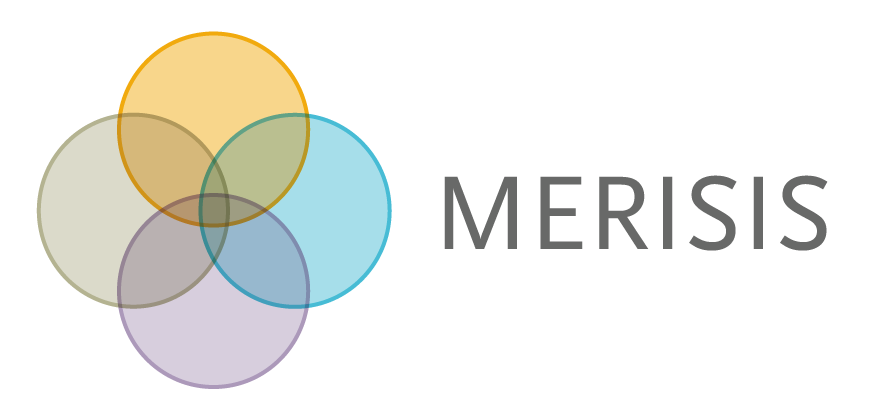
The company strategy was quite simple: Adapt & Adjust. Jon and Darren knew from experience that many large organisations were restricted by disparate legacy systems. This proved to be a two-sided challenge as aging IT legacy systems were a threat to progress, and disparate systems a threat to productivity – however complete replacement was a threat to business as usual and came with a large financial investment. What could businesses do?
Recognising that many businesses would be slow or restricted to wholesale technology changes, Merisis continued working with IBM AS/400 but developed their own product, Freestyle-400 – a lightweight alternative to IBM’s WebSphere.
Merisis therefore made life simpler – offering customers solutions with the ability to program the AS/400, to adapt and grow with Freestyle-400 and offer a completely new approach to a Java based solution. This was faster and a more cost-effective way forward, demonstrating not just the agility of tech companies such as Merisis, but also of the changing industry too.
Some of their first larger projects included:
• Budget Insurance Group – their first online car insurance quotation system which would then lead to home and caravan insurance, then ultimately the comparethemarket brand.
• Glenmorangie supplier portal – to view requirements for raw materials.
• UECC (United European Car Carriers – part of the NYK Group). Test project in Turkey leading to a long-term relationship
• A first mobile App! (for a logistics customer to track shipments on a PDA)
The benchmark is set for Merisis
This mindset and foundation of clients and projects really set Merisis up for what they were to become today. Not just content with churning out projects at pace for the sake of it, Jon and Darren have always understood the technological landscape which their customers face, and the challenges it creates for them. Understanding the benefits and challenges of the workings of IBM systems is an example of this.
Knowing that technology evolves, but also doesn’t always start from a clean slate, is also central to the relationships Jon and Darren fostered in those early days.
However, as we all know, the tech industry just keeps on changing.
In Part 3 we will come up to date with Merisis with more Apps, more logistics and more problem solving.
- 1. Credit: E Gammie, Concorde at Baginton Concorde performing a low-level wheels down flypast at a Baginton air show. Concorde_at_Baginton_-_geograph.org.uk_-_156846.jpg ↩︎
- 2. The PHP elePHPant; Credit: Vincent Pontier – http://www.elroubio.net/elephpant_download.php http://php.net/elephpant.php ↩︎

Merisis Case Study: Showcasing people
stories made thrillingly simple.
Capture Captain is a mobile app which allows teams to plan, direct and collect video content anywhere in the world on a mobile phone creating
the foundations for brand-consistent and authentic content with professional results.
The Capture Captain mobile app was the brainchild of Nico Cellabos-Jones. His aim – to utilise the everyday tech of a mobile phone to capture and create professional content from all corners of the globe.
The Challenge
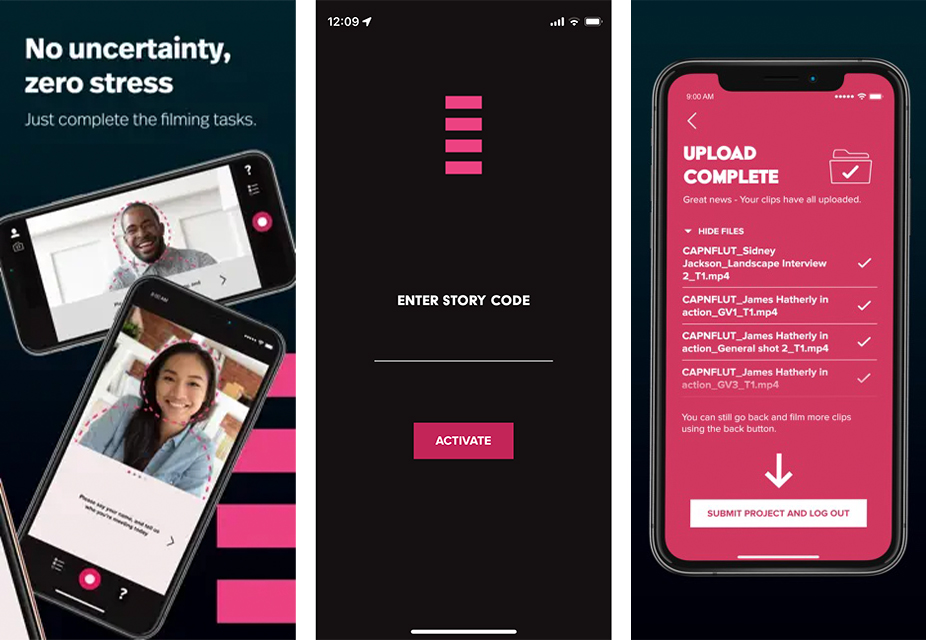
After their proof of concept stage, the Capture Captain directors needed to take their idea from ‘back-bedroom’ to professional.
Their vision was extremely clear to the extent that technical capability of a supplier was equalled by that of shared values and a strong relationship.
As a start-up, it was also critical that all aspects of the brief could be delivered on the agreed budget – meaning absolute transparency and no surprises.
Part of the vision of Capture Captain was that the app needed to offer an amazing experience for the user. Knowing that people would use the product with little to no introduction or training, it needed to be intuitive but also needed to operate very smoothly and in an aesthetically pleasing way.
This meant that attention to all levels of detail was imperative. A button alone required thought and consideration – and this was before Merisis had been engaged.
The overall outcome was for a functioning app, available for Capture Captain to commercialise..
Our Approach
For Merisis, it was important to understand and appreciate the overall vision of the client. As their ideas and creative application were so defined, a lot of focus was given to helping realise not just the technical challenge, but the visual nuances too.
Although a strong brand had been created, an app hadn’t been fully delivered as of yet, so ensuring the correct visual reactions and transitions – down to the last pixel – was all part of Merisis’ process.
“Merisis weren’t an external company to us. They were the best elements of having my very own technical department to work in parallel with us”
Nico Cellabos-Jones, Managing Director, Capture Captain
But to really deliver, Merisis needed to not only appreciate the role the app will play within someone’s world – but also what problems was it trying to achieve, and how it would be used.
One of the larger challenges was that of data transfer – something which, done badly, could easily render the app useless at worst, or very frustrating at the very least.
Another key challenge, considering the tight budget, was deciding if to build iOS first, or Android. The result was a solution which could enable both platforms.way.
The Outcome – a slick and effective mobile app
Capture Captain launches successfully and with great success – much of which is down to the tenacity and promotion of the directors – however Merisis are proud in an app which was delivered as promised, but also in building a relationship and understanding which continues to grow with new projects.
The app’s use has crossed continents, joined families and enabled businesses to get video messaging to market in a fast and professional way.
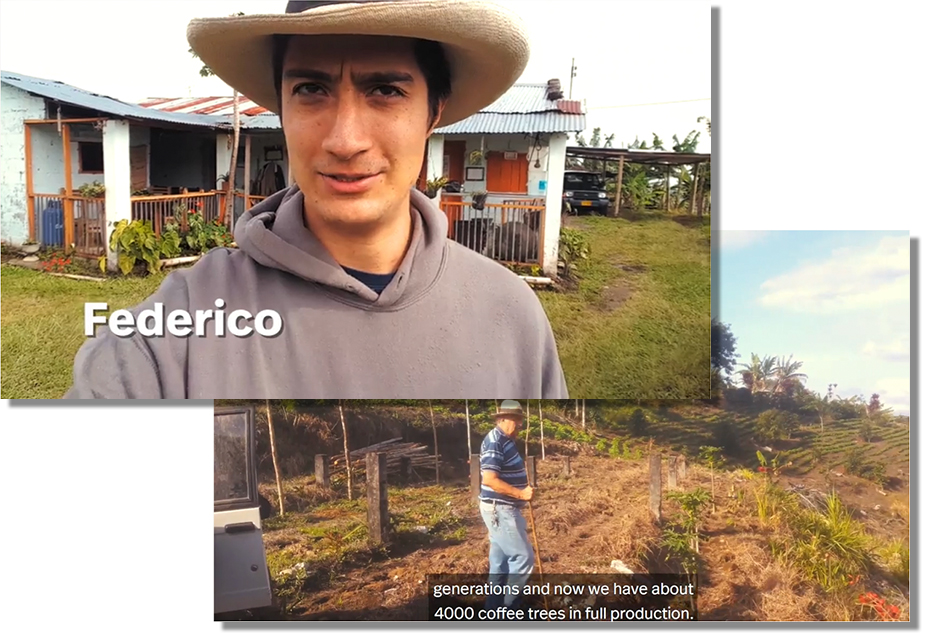
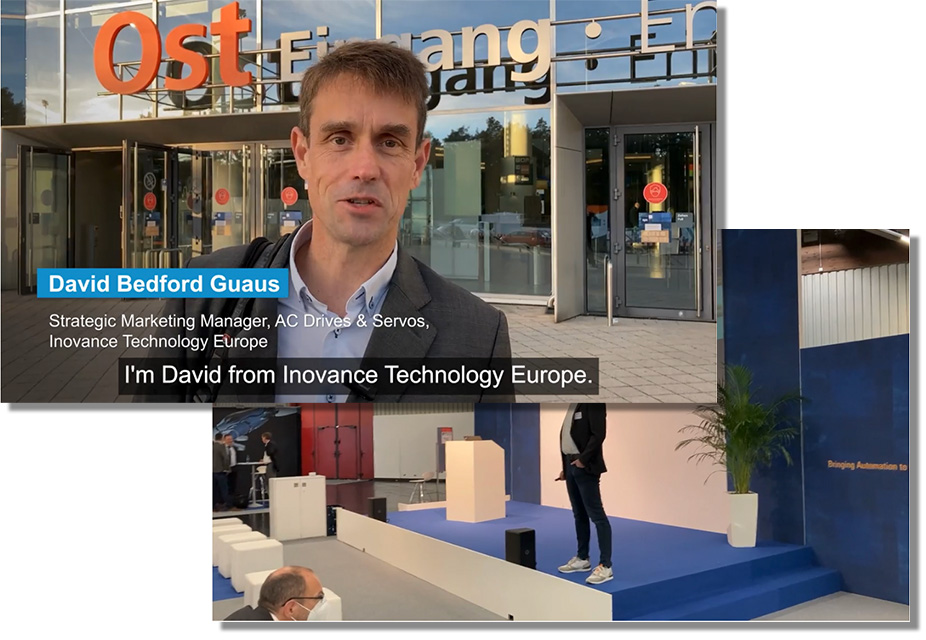
social media before the event had even finished.
For more info on Capture Captain, click here.


25 years in the Tech industry, Part 1.
We’ve recently been reflecting on what we’ve achieved at Merisis in the tech industry – from our early days when tech was just coming out of the back rooms of businesses to 2025 where tech is not only standard – it’s an expectation too.
A lot happens over the course of 25-plus years and we’ve welcomed each year with passion, enthusiasm, ideas and dedication. So, for the sake of bringing to the table some observations and lessons learned (as well as plenty of nostalgia too), here’s Part 1 of “Merisis – 25 years in the tech industry.”

How well do you recall the 90’s? It seems so close, however 1990 is now 35 years ago. Let’s briefly set the scene…
The turn of the new decade saw huge cultural revival as well as political change. We experienced the rise of Britpop, dance and rave scenes and later came the rise of Tony Blair’s Labour. The economy shifted from manufacturing to service-led and the UK and France physically connected with the Euro-Tunnel. In sport, Frank Bruno won the WBC heavyweight championship title in the mid-90’s and Britain’s most expensive footballing transfer cost just £5m. (Chris Sutton, Norwich to Blackburn).
From a business perspective, computers were available (with home-computers being available in the 1980’s), but pen and paper still very prevalent and fax machines were still used. Although we knew greater use of technology was ideal, the reality of this in the everyday workplace was perhaps a little more sobering. Computers were large, bulky, slow and expensive.
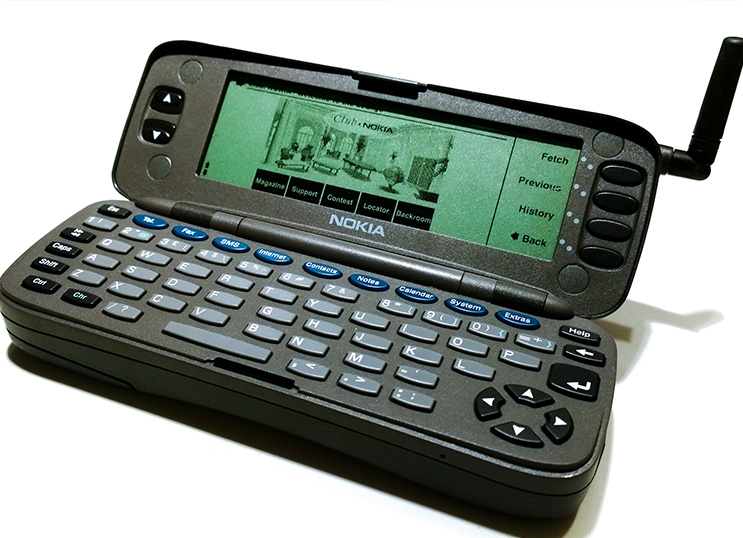
Change however, is constant: The 90’s is seen as the decade where the rise of mobile phones and the World Wide Web really kicked into gear. The ‘Browser Wars’ saw AOL discs delivered with your Sunday papers at home, and we had the choice of Internet Explorer and Netscape Navigator. Yahoo was one of the very first search engines, soon followed by the likes of Altavista and a startup called Google. A Blackberry device represented (in our opinion) an effective but clunky communication tool – as did the Nokia 9000 Communicator and as for the world of programming, COBOL was being superseded by the new kid on the block, Java.
Tech advances quickly and standard industry interfaces, such as MS Windows, made computers less of a ‘dark art’ and increasingly lower costs of CPUs started to make computers more cost-effective investment for businesses and how they operated.
However, we weren’t without restrictions in this new age. The consumer web was a great step in opening a world of information, but broadband was yet to take hold in a way we recognise now. Dial-up access was slow and costly, and the bandwidth was narrow. Webpages were basic and needed to be; anything too large would cause a time-out and the painful process of loading a page would start again. And in terms of how pages looked and were used – this was considered as pages were built. Job roles with ‘UX’ or ‘UI’ certainly weren’t commonplace.
But we still moved forward.
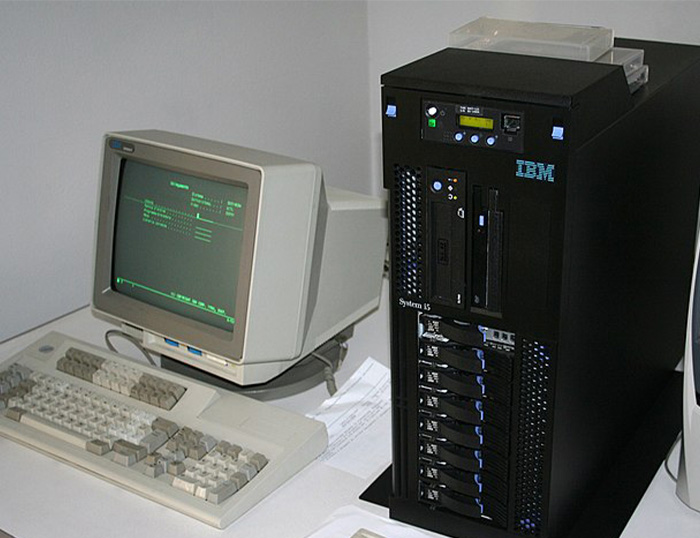
At this time, computers were used widely, especially in large organisations where IT systems and servers were required – however they needed a good amount of technical know-how to use. Midrange servers from IBM, DEC and HP provided the backbone of the early IT systems. This was the time of IBM AS/400 system – and a mantra we often heard was;
“If you were in business, you needed IBM.”
This alone represents the stronghold which IBM had on business technology at the time but of course, nothing lasts forever.
Founding Merisis
This brings us to Merisis, or rather the foundations of the business. Founders Darren Magson and Jon Tyler were to meet in the later 90’s – Darren having worked for renowned freight-forwarder LEP International and then GeoLogistics, Jon joining GeoLogistics from specialist IT logistics software company CSI in 1998/99. Both experiences gave them the foundations in information technology and how, when applied correctly, it could be used to great effect.
Darren recalls one of the first internet projects at this time – a browser-based cargo tracking system. This seems commonplace now, but remember – this is well over 20 years ago. The system in question was manually event-driven (departure/at airport or quayside, loaded, sailed or departed, arrived) and included a portal to open this information to their customers. The last fact alone demonstrates the change in the use of technology, and how it was becoming more customer focussed and part of more aspects of our lives. It also represents the type of work which was to become the backbone of Merisis – technology for Darren and Jon wasn’t about showing off different programming techniques or design styles, but was firmly rooted in creating the best solution to resolve a problem in the best way.
The growth of the internet offered huge opportunities to how businesses operated, however legacy systems and complicated interfaces were clearly a barrier.
By the time Darren and Jon decided to create Merisis, tech really was in growth. Both Jon and Darren saw the opportunity within technology and had a shared ideology. The growth of the internet offered huge opportunities to how businesses operated, however legacy systems and complicated interfaces were clearly a barrier. They also saw how technology could make a huge impact on the logistics sector – where not only recording and capturing information was important – but also sharing this intelligently could bring efficiencies on a global scale.
By the end of the 90’s, the combination of consumers and tech was becoming more commonplace. The conditions of price, usability and purpose were all favourable and the more consumers had access to, the more they not only wanted, but expected to. Mobile phones, text messages, DVD’s, MP3 – we were truly in a digital world.
In Part 2 we will go into the early 2000’s where Merisis start to make their mark in the logistics industry as well as first steps into the world of Mobile Apps.

Merisis Case Study: Creating real-time
visibility and efficiency for Yusen Logistics.
Yusen Logistics have over 595 offices in 255 cities in 47 countries and regions working across industries such as aerospace, automotive, tech and healthcare.
Merisis work with Yusen Logistics’ European warehousing and distribution network.
Logistics technology: Yusen Logistics use an industry standard software solution which is the digital heart of their transport management services. However, in line with customer requirements and Yusen Logistics’ strategic digital services vision, there was a recognised need to offer a greater level of personalisation and customisation which would therefore create a more bespoke customer experience, but without incurring excessive development fees or starting anew.
The Challenge
Unfortunately, the embedded software did not offer the flexibility or customisation options required. Yusen Logistics’ requirement was to create an interface which enabled all key contributors and owners of different elements of the logistics process to have greater visibility at any given time. An additional goal was to improve efficiency within the ordering logistics process.
The challenge for Merisis was to design and build a dashboard which was to be both very flexible as well as retaining the valuable data from the ‘off the shelf’ software solution too. It was extremely important that Merisis’ solution didn’t create additional or repeat work for Yusen Logistics or indeed, for their customers.
Our Approach


Merisis worked alongside Yusen Logistics and combined their understanding of the logistics industry with technical capability to create a solution which would seamlessly interact with the content on the base software package used across the business.
To start the project, meetings and workshops were arranged which soon identified duplicate processes within the incumbent solution as well as a dependence on manual updates and notifications which could lead to error and increased processing time.
In addition, Merisis felt that other technologies such as GPS location tracking was not being utilised to its best, and therefore saw ways to modernise the tracking process. A key part of the challenge was ensuring the central system was not replaced and all additions were to act as enhancements. This was to make sure the users of the system had an uninterrupted and stress-free experience and the benefits of previous work was retained.
The Outcome – Logistics Technology that delivers
“Choosing Merisis to work with us on our Road Portal Europe tool was an easy decision – they have a long history of delivering successful projects for Yusen Logistics.
They add value to the process both functionally and technically, and are considered as a trusted partner rather than supplier.”
Chris Davidson, Regional Application Specialist (TMS), IT
Yusen Logistics’ Road Portal has been a great success delivering on expectation for the first stage with new enhancements ready to create a more effective and relevant system. It’s enabling Yusen Logistics to offer their clients an enhanced level of visibility which was not previously available to them with the industry solution.
Furthermore, the new real-time elements positions the Road Portal as a single point of truth, not just for logistics companies, but also for manufacturers, warehousing and the customer.
The portal has delivered the functionality, accessibility and bespoke personalisation which wasn’t previously available. Such is the positive feedback that both Yusen Logistics and Merisis are continuing to develop and improve the portal – adding new components making it an invaluable tool for them and their customers.


